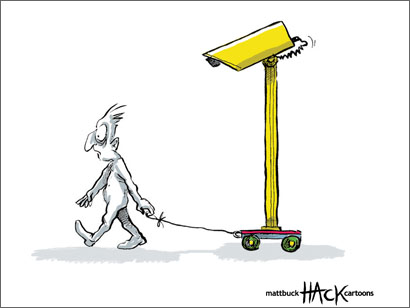The phone-hacking scandal at the News of the World has prompted numerous debates about ethical practices in newsrooms in the UK and abroad, as well as a public inquiry in Britain and calls for a new regulatory framework in Britain.
So it was under the frame of the News of the World closure that the Global Editors Network news summit today held a session on ethical journalism.
But board member of the Stiching Democracie en Media in the Netherlands Adriaan Stoop warned that governments “feeling the need to regulate media” given “developments in technology” is a “big threat”.
The problem is if we do not decide to do it ourselves, then somebody else is going to do it and that’s the last thing you want.
Interestingly in opening the session Francois Dufour, editor-in-chief of Play Bac Presse in France had already taken a first step in the DIY approach, by proposing 10 “world journalism principles”.
These included keeping certain things separate, such as the roles of editor and publisher, journalism and advertising and facts and opinion.
Other points include double checking of facts, respecting privacy and where “people are presumed innocent it is respected”.
Other panelists also shared their ideas on good and ethical journalism and their views of best practice in the media.
Bambang Harymurti, CEO of Tempo Indonesia, and also a member of Indonesia’s press council, said the question is whether mistakes are made with “malicious intent”.
It’s very important that society has that understanding … A good journalist is not a journalist that never makes a mistake, but when they make a mistake, before anyone complains, they make a correction and tell the public.
He said that journalists should say to themselves: “When I write something I truly believe it is the truth and if later I find I made a mistake I will quickly correct it and tell the public”.
The issue of standards and ethics also moved to the online environment, with standards editor of the Associated Press Tom Kent asked to comment on the fact journalists who tweeted about the arrest of fellow reporters covering the Occupy Wall Street protests were told to stop doing so.
He said this was not considered “a competitive news situation”.
It was about the welfare of journalists. We told them to cut it out and I feel comfortable with that.
He added that when it comes to reporting generally on Twitter, the news agency has “an obligation to people who support AP” to preserve exclusives for the wire.
As for reporting online generally, the rules are “largely” the same, he said.
Do not have different standards. I think that one thing that has changed in the landscape is the existence of bloggers and they do play very important role in press coverage in lot of countries. We are very interested in helping to protect bloggers and not in providing tools that can be used against them.
Summing up, GEN consultant Aidan White said the question to be asked is:
How do we in journalism try to make sure the person producing the information, editing the information and putting it out has got a sense that they’re doing something as a part of public responsibility. That is the challenge.
As a result, he announced that GEN will launch a coalition for ethical journalism which will “bring in partners from the online industry, print, broadcast etc” and another debate on the topic has already been scheduled for GEN’s next summit in Paris next year.
He also shared the following links as useful resources on the topic of ethics and standards in journalism:

